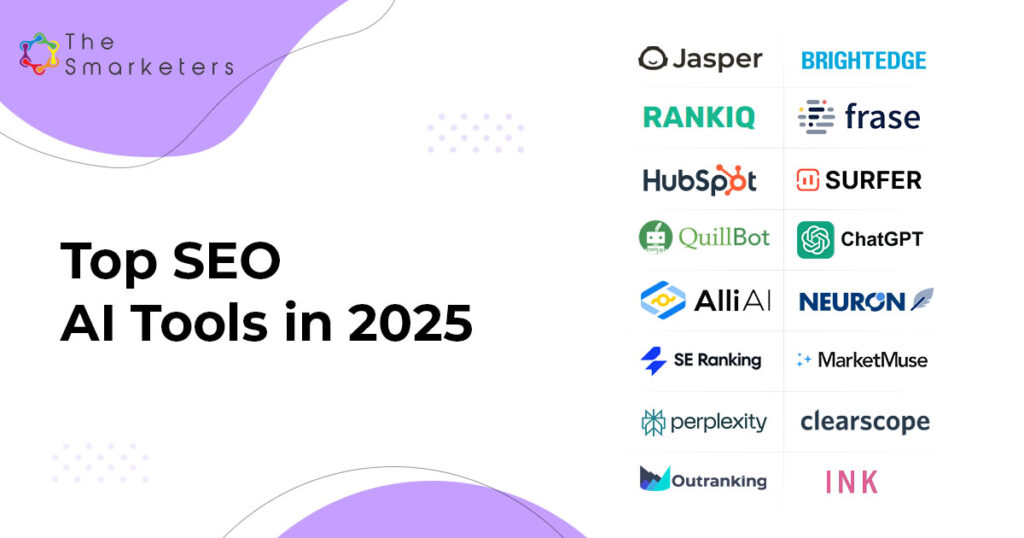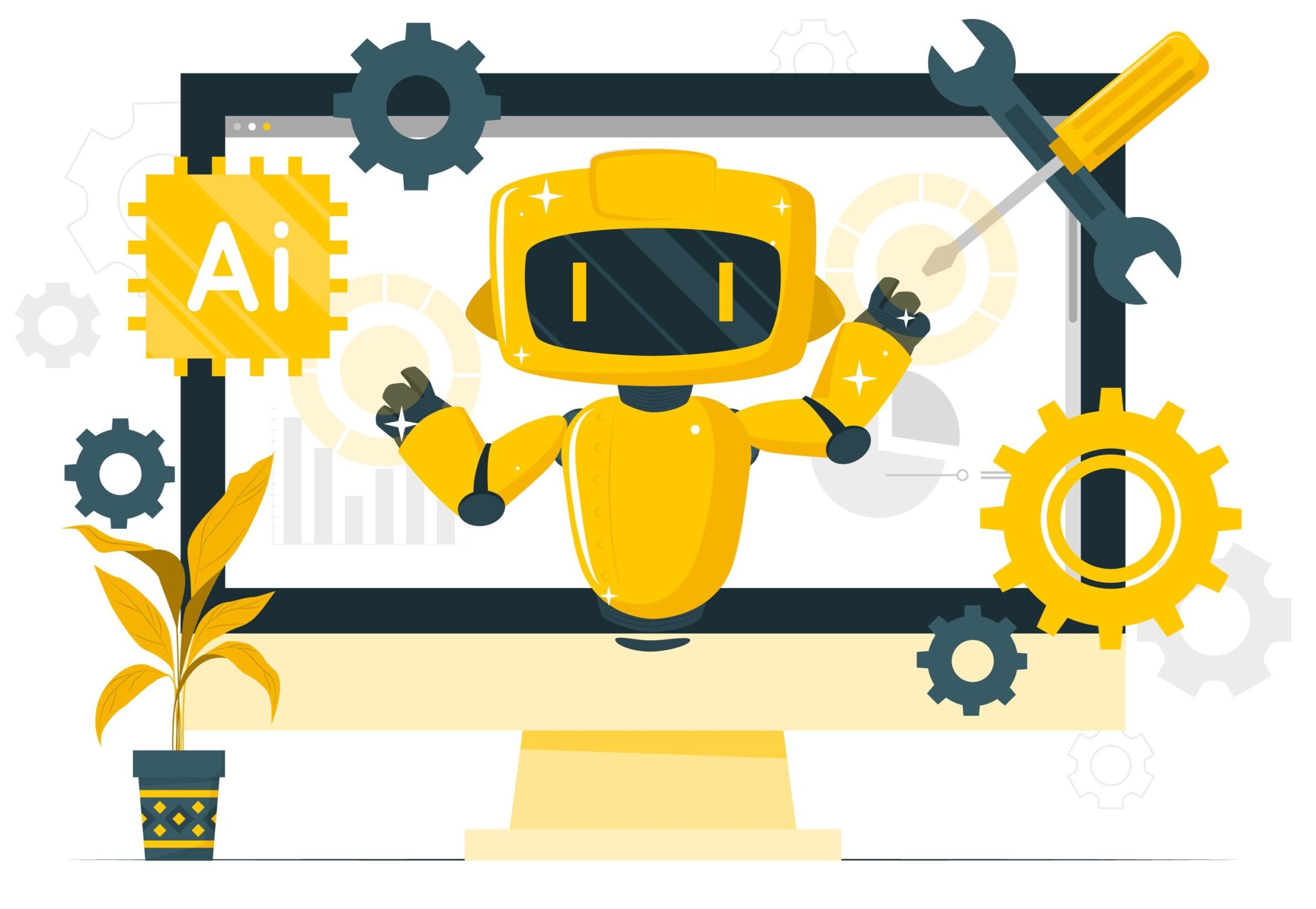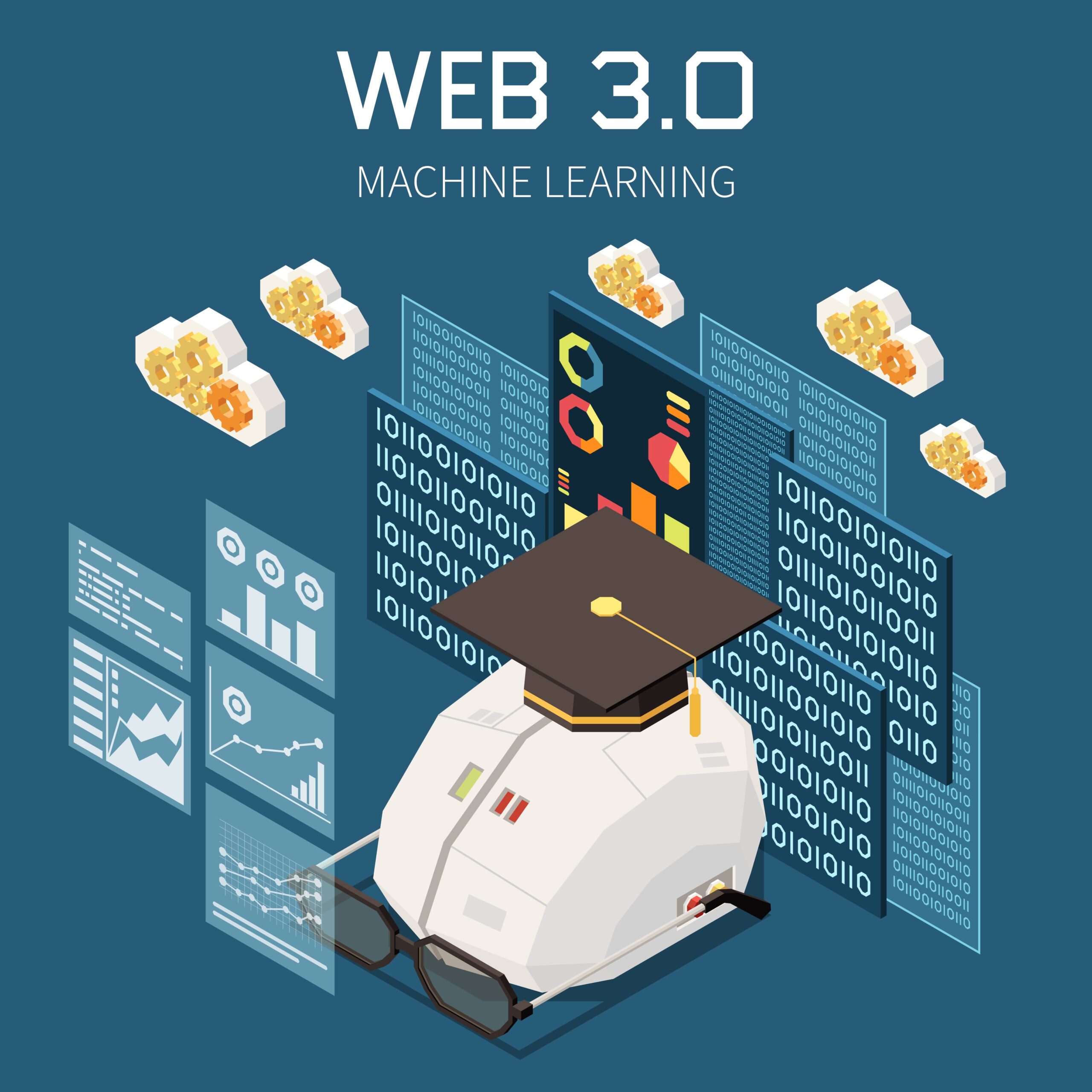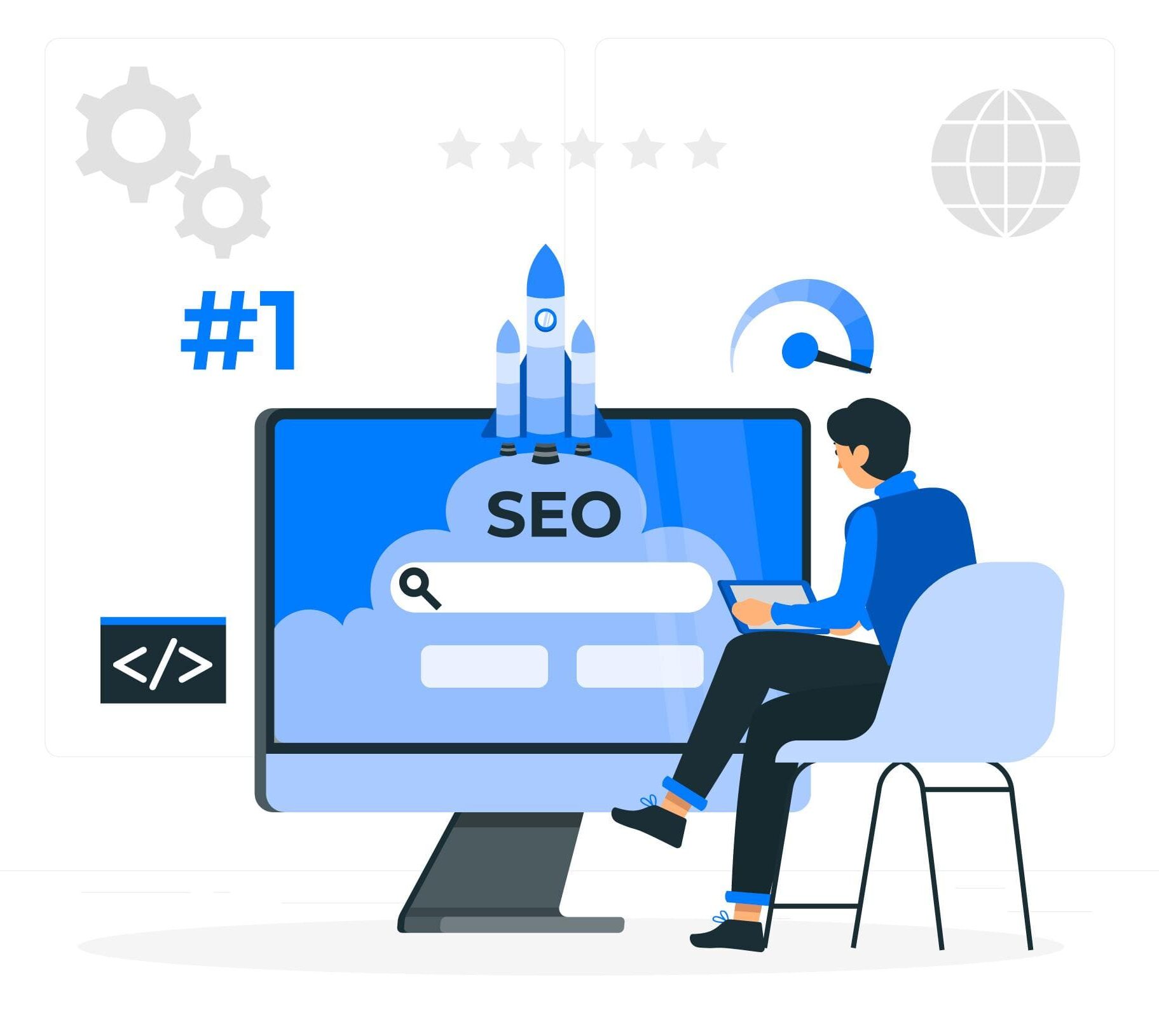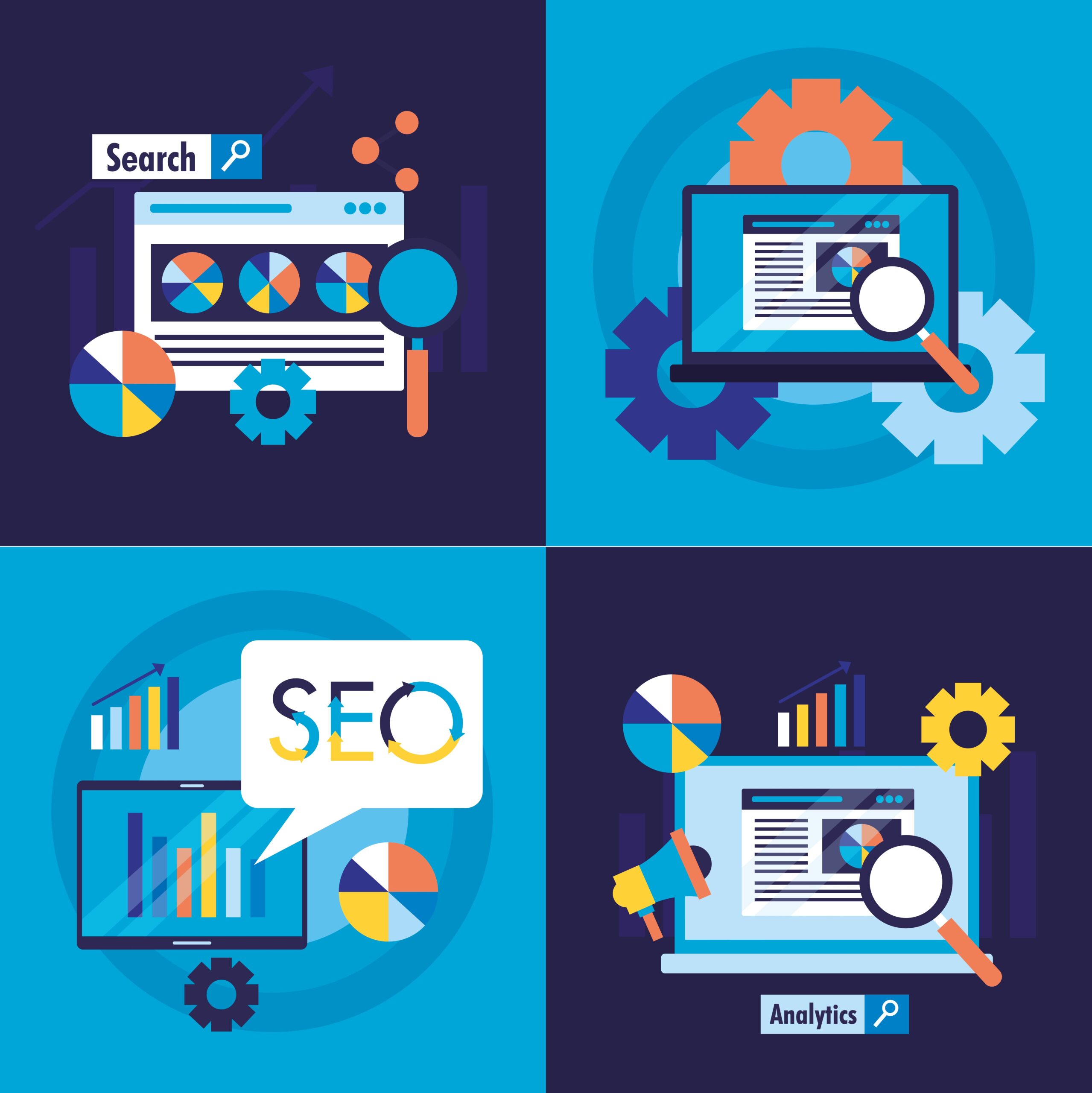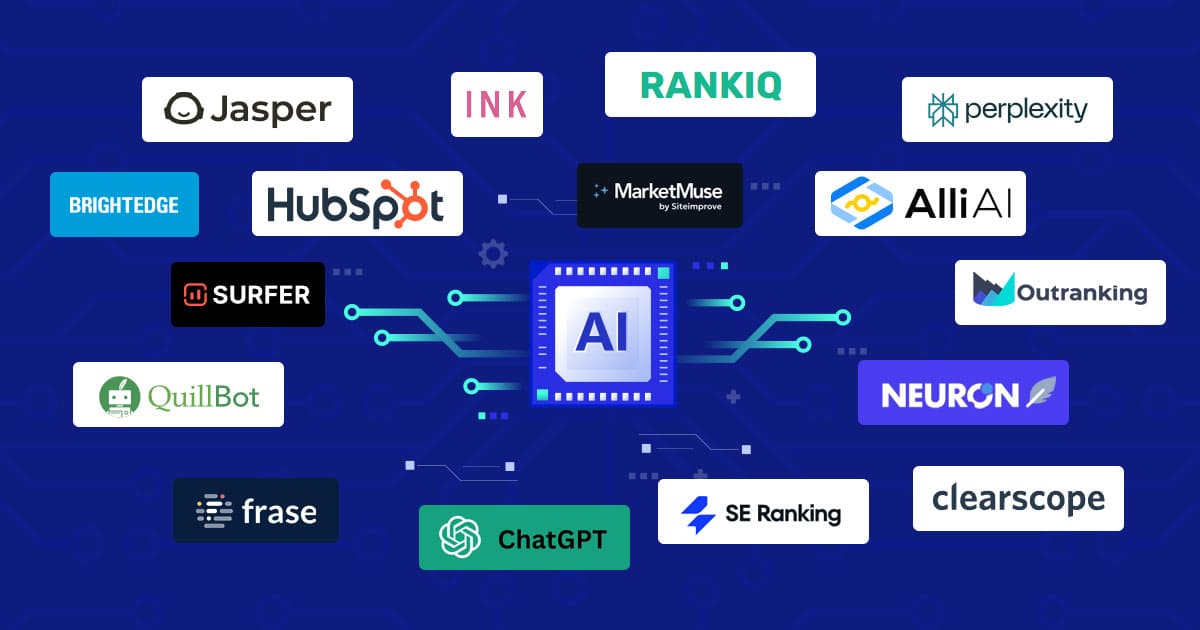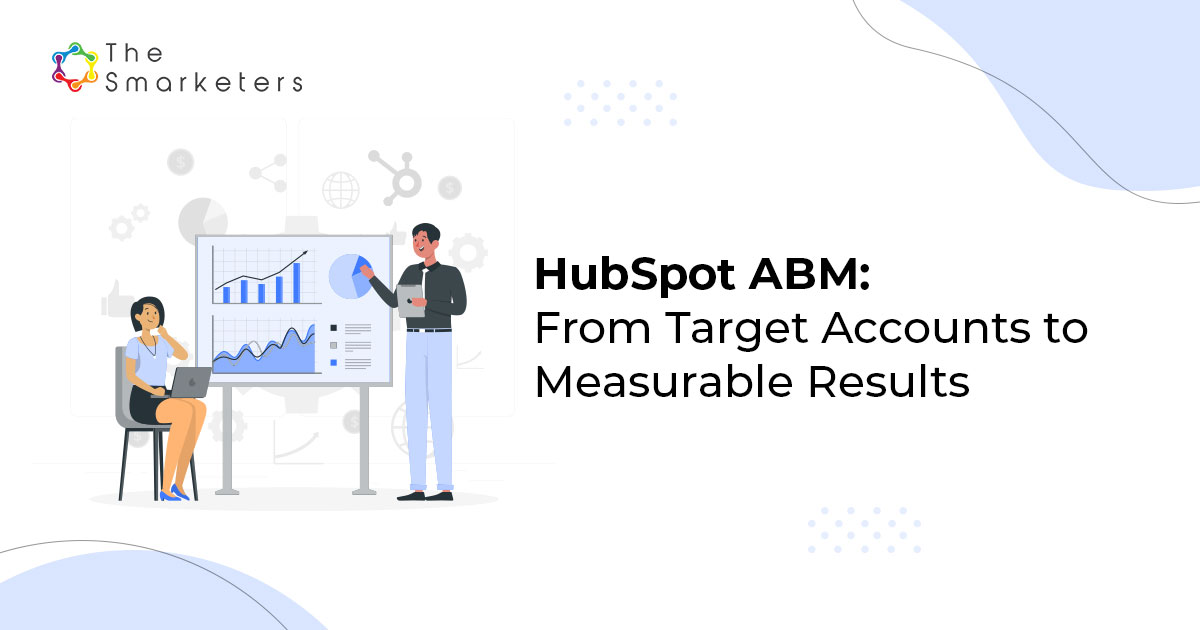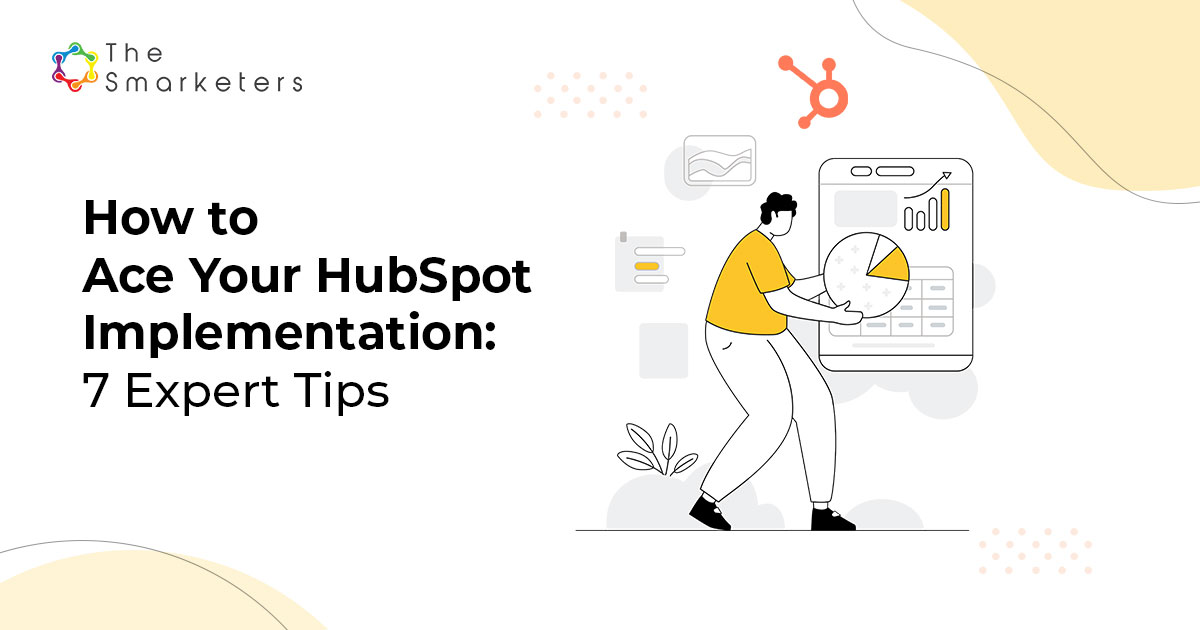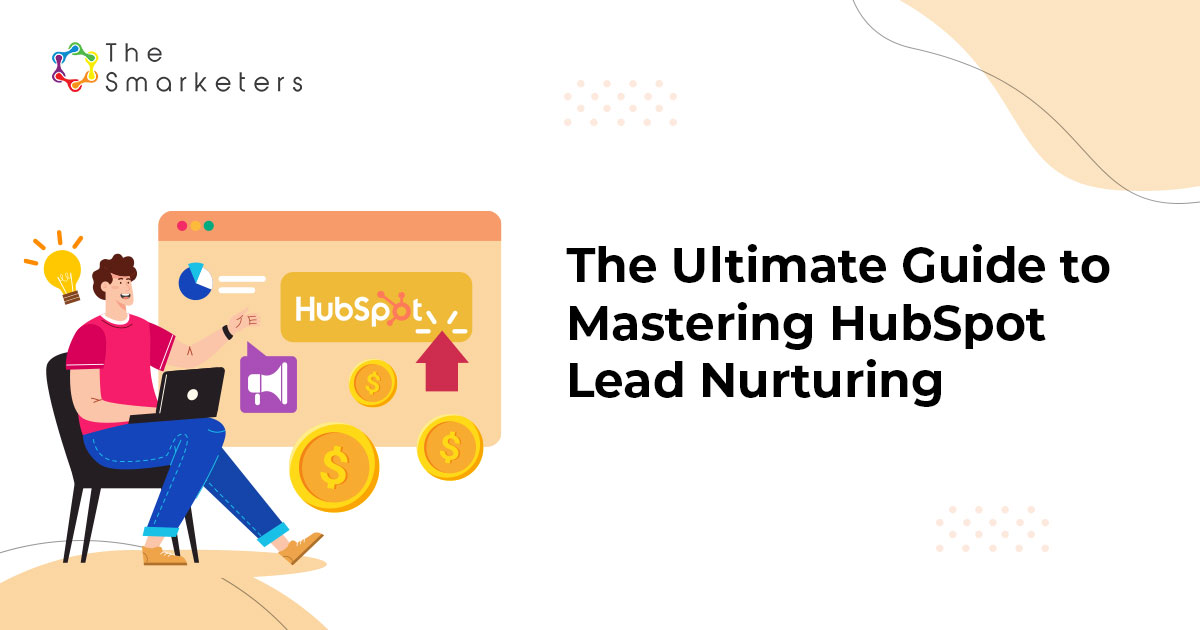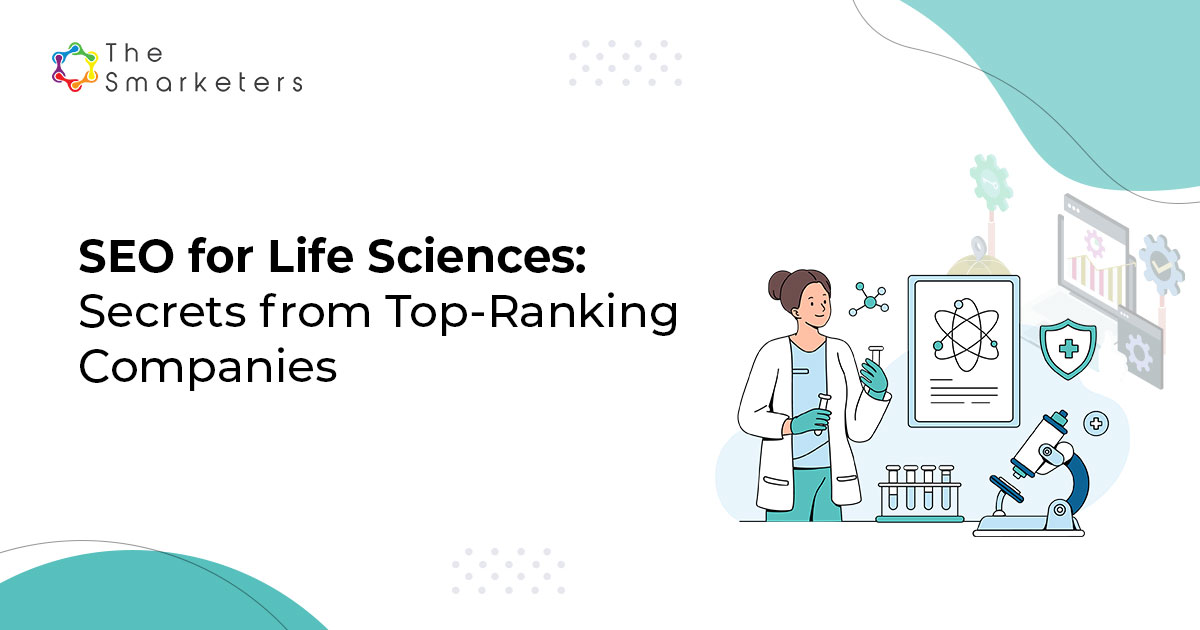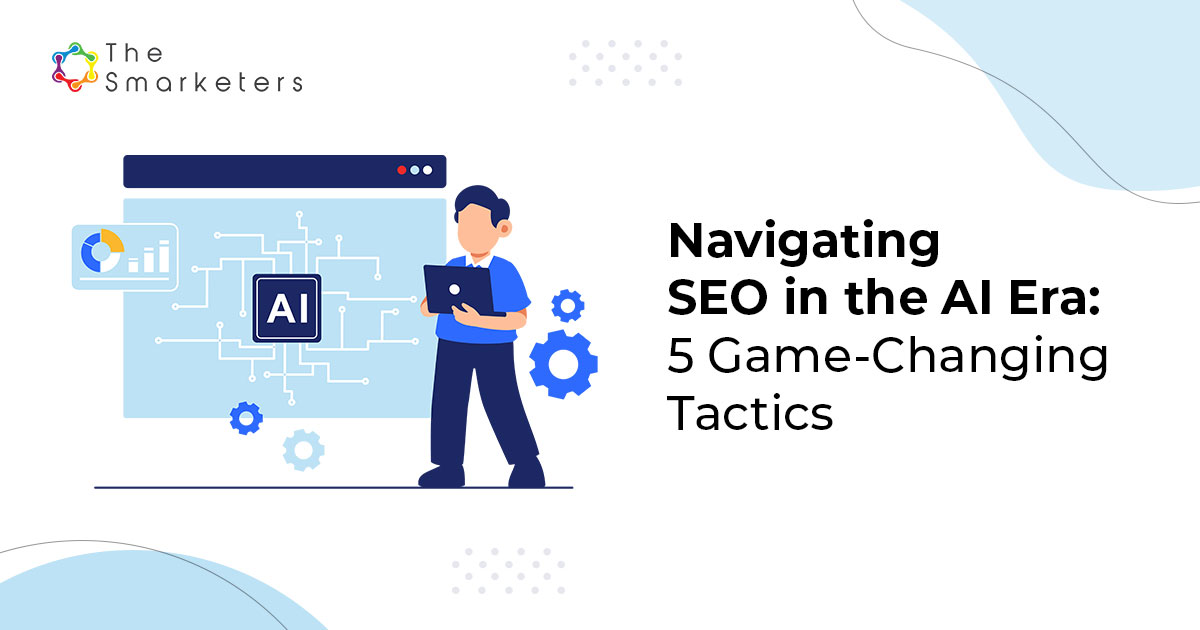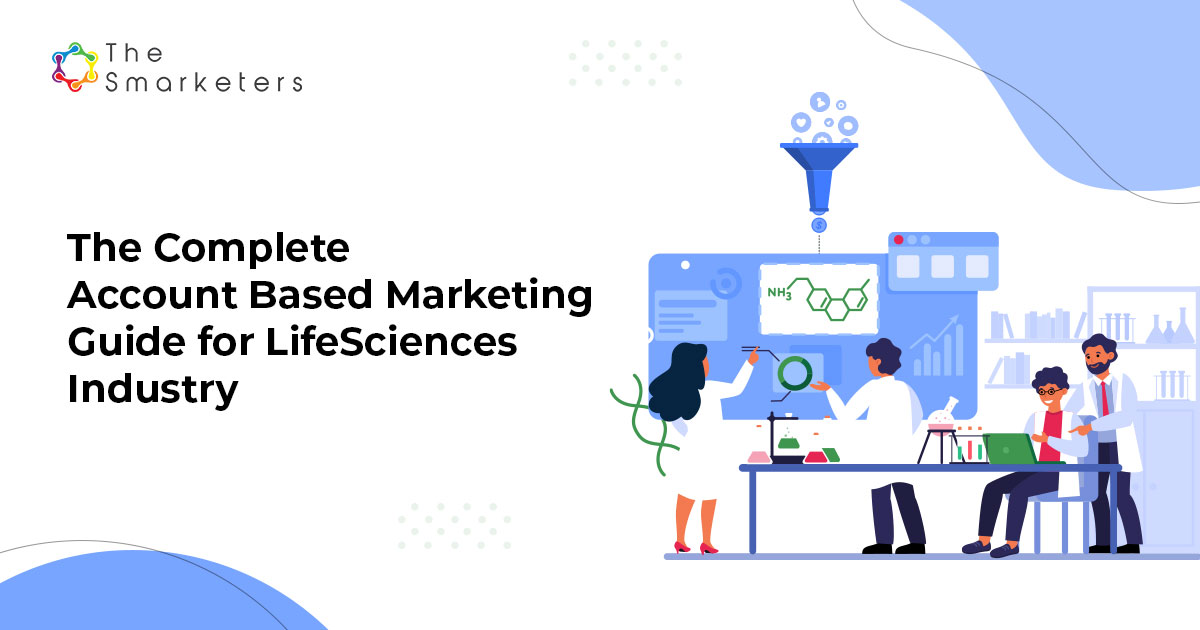Imagine spending countless hours manually optimizing your website, only to see minimal improvements in your search rankings. That was the reality for many marketers just a few years ago. But now, AI has revolutionized the SEO landscape, transforming how we approach search engine optimization.
Did you know that there are over 3,000 AI tools available today, with nearly 300 specifically designed for SEO? As a marketer, you can’t afford to ignore this game-changing technology. AI SEO tools are not just a trend; they’re becoming essential for staying competitive in the digital world. With the ability to analyze vast amounts of data, predict search trends, and automate tedious tasks, these tools are helping businesses skyrocket their online visibility.
Are you ready to supercharge your SEO strategy and leave your competitors in the dust? In this blog post, we’ll dive into the world of AI SEO, exploring how it impacts search engine rankings, the benefits of using AI-powered tools, and the top features you should look for. We’ll even unveil the 16 best AI SEO tools to use in 2025, along with best practices to maximize their potential. Let’s embark on this exciting journey to transform your SEO efforts and boost your online presence!
What is AI SEO, and how does it impact search engine rankings?
Understanding AI SEO
Artificial Intelligence (AI) in Search Engine Optimization (SEO) refers to the use of machine learning algorithms and advanced data analysis techniques to improve website visibility and ranking in search engine results pages (SERPs). AI SEO tools leverage the power of artificial intelligence to automate and enhance various aspects of SEO strategy, from keyword research to content optimization.
How AI Revolutionizes SEO
AI has transformed the landscape of SEO by introducing capabilities that were once unimaginable. Here’s how AI is revolutionizing SEO:
- Advanced Data Analysis: AI can process vast amounts of data quickly, identifying patterns and insights that humans might miss.
- Predictive Analytics: AI algorithms can forecast trends and anticipate changes in search engine algorithms.
- Natural Language Processing (NLP): AI-powered tools can understand and generate human-like text, improving content quality and relevance.
- Automated Optimization: AI can automatically optimize various on-page elements, saving time and reducing human error.
Key Components of AI SEO
To fully grasp the concept of AI SEO, it’s essential to understand its key components:
- Machine Learning Algorithms
- Natural Language Processing
- Predictive Analytics
- Automated Content Generation
- Voice Search Optimization
Let’s delve deeper into each of these components and their role in AI SEO.
Machine Learning Algorithms in SEO
Machine learning algorithms form the backbone of AI SEO tools. These algorithms can learn from data, identify patterns, and make decisions with minimal human intervention. In the context of SEO, machine learning algorithms can:
- Analyze search patterns and user behavior
- Predict keyword trends and search volumes
- Optimize content for specific target audiences
- Identify link-building opportunities
Practical Applications of Machine Learning in SEO
Here are some practical ways machine learning is applied in SEO:
| Application | Description | Impact on SEO |
|---|---|---|
| Keyword Research | Predicts valuable keywords based on search trends and user intent | Improves content relevance and targeting |
| Content Optimization | Suggests improvements to content structure and readability | Enhances user experience and search engine rankings |
| Link Building | Identifies high-quality link opportunities | Boosts domain authority and search rankings |
| SERP Analysis | Analyzes competitor rankings and strategies | Helps in developing more effective SEO strategies |
Natural Language Processing (NLP) in SEO
Natural Language Processing is a branch of AI that focuses on the interaction between computers and human language. In SEO, NLP plays a crucial role in:
- Understanding user intent behind search queries
- Optimizing content for semantic search
- Improving the relevance and quality of content
- Enhancing voice search optimization
How NLP Improves Content Optimization
NLP helps in creating more natural, user-friendly content that aligns with search engine algorithms. Here’s how:
- Topic Modeling: NLP can identify the main topics and subtopics in a piece of content, ensuring comprehensive coverage of a subject.
- Entity Recognition: It can identify and categorize named entities (people, places, organizations) in text, helping with content structuring and internal linking.
- Sentiment Analysis: NLP can gauge the overall sentiment of content, helping to create more engaging and emotionally resonant pieces.
- Readability Analysis: It can assess the complexity of text and suggest improvements for better readability.
Predictive Analytics in SEO
Predictive analytics uses historical data and statistical algorithms to forecast future trends. In SEO, this capability is invaluable for:
- Anticipating changes in search engine algorithms
- Predicting seasonal trends in search behavior
- Forecasting the performance of specific keywords or content pieces
- Identifying emerging topics and trends before they become mainstream
Leveraging Predictive Analytics for SEO Success
Here are some ways you can use predictive analytics to stay ahead in your SEO efforts:
- Trend Forecasting: Predict upcoming trends in your industry and create content ahead of time.
- Content Performance Prediction: Estimate how well a piece of content will perform before publishing it.
- Algorithm Update Preparation: Anticipate potential impacts of search engine algorithm updates and adjust your strategy proactively.
- Competitor Strategy Analysis: Predict your competitors’ next moves based on their historical data and current trends.
Automated Content Generation
AI-powered content generation tools can create human-like text, helping SEO professionals in various ways:
- Generating meta descriptions and title tags
- Creating outlines for long-form content
- Producing short-form content like product descriptions or social media posts
- Translating content for international SEO
Balancing AI-Generated and Human-Created Content
While AI can generate content quickly, it’s crucial to maintain a balance:
- Use AI for initial drafts or ideas
- Have human editors review and refine AI-generated content
- Ensure the content aligns with your brand voice and style
- Use AI-generated content as a supplement, not a replacement for human creativity
Voice Search Optimization
With the rise of virtual assistants and smart speakers, voice search optimization has become a crucial aspect of AI SEO. Here’s how AI is shaping voice search optimization:
- Understanding Natural Language Queries: AI helps interpret the intent behind conversational voice searches.
- Optimizing for Featured Snippets: AI tools can help create content that’s more likely to be selected for voice search results.
- Local SEO for Voice: AI can optimize local business information for voice-based local searches.
- Schema Markup Implementation: AI can automate the process of adding structured data to your website, making it easier for voice assistants to understand and present your content.
Now that you have a comprehensive understanding of AI SEO and its components, you’re better equipped to leverage these advanced tools and techniques in your SEO strategy. In the next section, we’ll explore how AI SEO specifically impacts search engine rankings, providing you with actionable insights to improve your website’s visibility and performance in search results.
How AI SEO impacts search engine rankings?
Improved keyword research
AI-powered SEO tools have revolutionized the way you conduct keyword research, giving you a significant edge in search engine rankings. By leveraging advanced algorithms and machine learning capabilities, these tools provide you with deeper insights and more accurate data than ever before.
You’ll find that AI SEO tools can analyze vast amounts of data from multiple sources, including search engine results pages (SERPs), social media platforms, and competitor websites. This comprehensive approach allows you to:
- Discover long-tail keywords with high potential
- Identify semantic variations and related terms
- Understand user intent behind search queries
- Predict keyword trends and seasonal fluctuations
One of the most significant advantages of AI-driven keyword research is its ability to uncover hidden opportunities. These tools can identify niche keywords that your competitors might have overlooked, giving you a chance to target less competitive but highly relevant search terms.
Here’s a comparison of traditional keyword research methods versus AI-powered approaches:
| Aspect | Traditional Methods | AI-Powered Methods |
|---|---|---|
| Data sources | Limited to a few platforms | Multiple sources, including real-time data |
| Analysis speed | Slow and manual | Rapid and automated |
| Keyword suggestions | Based on exact matches | Includes semantic variations and related terms |
| User intent analysis | Limited or manual | Advanced and automated |
| Trend prediction | Basic or non-existent | Accurate and data-driven |
By leveraging AI for keyword research, you’ll be able to create more targeted and effective content strategies that align with user intent and search engine algorithms. This, in turn, will help improve your website’s visibility and rankings in search results.
Enhanced content optimization
AI SEO tools have transformed the way you approach content optimization, making it more precise and effective. These advanced tools go beyond simple keyword density checks and provide you with comprehensive insights to create content that resonates with both search engines and users.
Here are some ways AI enhances your content optimization efforts:
-
Natural Language Processing (NLP): AI tools use NLP to analyze your content’s readability, tone, and sentiment. This helps you create more engaging and user-friendly content that aligns with your target audience’s preferences.
-
Topic clustering: AI algorithms can identify related topics and subtopics, helping you create more comprehensive and authoritative content. This approach allows you to cover a subject in-depth, increasing your chances of ranking for multiple related keywords.
-
Content gap analysis: AI-powered tools can analyze top-ranking pages for your target keywords and identify topics or subtopics that you haven’t covered. This insight helps you fill content gaps and create more comprehensive resources.
-
Semantic optimization: AI tools can suggest semantically related terms and phrases to include in your content, helping you optimize for context rather than just exact-match keywords.
-
Real-time optimization suggestions: Some AI SEO tools provide real-time recommendations as you write, helping you optimize your content on the fly.
By leveraging these AI-driven content optimization techniques, you can create more valuable, relevant, and search engine-friendly content. This approach not only improves your chances of ranking higher in search results but also enhances user engagement and satisfaction.
Technical SEO optimization
AI has made significant strides in technical SEO optimization, allowing you to identify and resolve complex issues that may be hindering your website’s performance in search rankings. By leveraging AI-powered tools, you can streamline your technical SEO efforts and ensure your website meets the latest search engine requirements.
Here are some key areas where AI impacts technical SEO:
-
Site structure optimization: AI tools can analyze your website’s structure and suggest improvements to enhance crawlability and user experience. This includes optimizing internal linking, identifying orphaned pages, and recommending changes to your site’s architecture.
-
Page speed optimization: AI-powered tools can analyze your website’s loading speed and provide specific recommendations to improve performance. These suggestions may include image compression, browser caching, and code minification.
-
Mobile optimization: With mobile-first indexing becoming increasingly important, AI tools can help you identify and resolve mobile-specific issues, ensuring your site performs well across all devices.
-
Schema markup implementation: AI can assist in generating and implementing structured data markup, making it easier for search engines to understand your content and display rich snippets in search results.
-
Automated error detection: AI-powered crawlers can continuously monitor your website for technical issues such as broken links, duplicate content, and crawl errors, alerting you to problems before they impact your rankings.
To illustrate the impact of AI on technical SEO, consider the following table comparing manual and AI-assisted technical optimization:
| Technical SEO Task | Manual Approach | AI-Assisted Approach |
|---|---|---|
| Site audit | Time-consuming, prone to human error | Rapid, comprehensive, and accurate |
| Page speed analysis | Limited to basic metrics | In-depth analysis with prioritized recommendations |
| Mobile optimization | Relies on manual testing | Automated testing across multiple devices and scenarios |
| Schema markup | Requires extensive knowledge | Automated generation and implementation suggestions |
| Error detection | Periodic manual checks | Continuous monitoring and real-time alerts |
By leveraging AI for technical SEO optimization, you can ensure that your website maintains a strong technical foundation, which is crucial for achieving and maintaining high search engine rankings.
Increased efficiency
One of the most significant impacts of AI on SEO is the dramatic increase in efficiency it brings to your optimization efforts. AI-powered tools can automate many time-consuming tasks, allowing you to focus on strategy and creative aspects of SEO. This increased efficiency translates into faster results and a better return on investment for your SEO campaigns.
Here are some ways AI enhances SEO efficiency:
-
Automated reporting: AI tools can generate comprehensive SEO reports in minutes, saving you hours of manual data collection and analysis. These reports often include actionable insights and recommendations, helping you make data-driven decisions quickly.
-
Scalable optimization: AI allows you to optimize large websites with thousands of pages more efficiently. Tasks like meta tag optimization, internal linking, and content recommendations can be automated across your entire site.
-
Predictive analysis: AI algorithms can forecast SEO trends and potential ranking fluctuations, allowing you to proactively adjust your strategies and stay ahead of the competition.
-
Personalized recommendations: AI tools can provide tailored optimization suggestions based on your specific website, industry, and target audience, eliminating the need for generic, one-size-fits-all approaches.
-
Competitive analysis: AI-powered tools can continuously monitor your competitors’ SEO strategies, alerting you to changes and opportunities in real-time.
To illustrate the efficiency gains of AI in SEO, consider the following comparison:
| SEO Task | Time Spent (Manual) | Time Spent (AI-Assisted) | Efficiency Gain |
|---|---|---|---|
| Keyword research | 5 hours | 30 minutes | 90% |
| Content optimization | 3 hours per page | 30 minutes per page | 83% |
| Technical audit | 8 hours | 1 hour | 87.5% |
| Backlink analysis | 4 hours | 15 minutes | 93.75% |
| Reporting | 6 hours | 10 minutes | 97% |
By leveraging AI in your SEO workflow, you can significantly reduce the time and resources required for various tasks, allowing you to scale your efforts and achieve better results in less time.
Now that you understand how AI impacts search engine rankings through improved keyword research, enhanced content optimization, technical SEO optimization, and increased efficiency, it’s time to explore the specific AI SEO tools that can help you leverage these advantages. In the next section, we’ll dive into the top features you should look for in AI SEO tools to maximize your search engine optimization efforts.
Benefits of using AI SEO tools
Streamlined Workflow and Time Savings
In the fast-paced world of digital marketing, time is of the essence. AI SEO tools have revolutionized the way marketers approach search engine optimization by significantly streamlining workflows and saving precious hours. You’ll find that these intelligent systems can automate many time-consuming tasks that once required manual effort.
For instance, keyword research, which traditionally could take days, can now be accomplished in minutes. AI-powered tools analyze vast amounts of data to identify high-potential keywords, allowing you to focus on strategy rather than getting bogged down in spreadsheets. Similarly, content optimization becomes a breeze when you use AI to suggest improvements in real-time as you write.
Here’s a breakdown of how AI SEO tools can save you time:
- Automated keyword research and analysis
- Instant content optimization suggestions
- Rapid competitor analysis
- Quick technical SEO audits
- Automated reporting and analytics
By leveraging these capabilities, you can redirect your efforts towards more creative and strategic aspects of your SEO campaigns, ultimately leading to better results in less time.
Enhanced Data Analysis and Insights
One of the most significant advantages of using AI SEO tools is their ability to process and analyze enormous amounts of data quickly and accurately. You’ll gain access to deep insights that would be nearly impossible to uncover manually.
These tools can sift through search trends, user behavior patterns, and competitor strategies to provide you with actionable intelligence. For example, you can identify emerging topics in your industry before they become mainstream, giving you a first-mover advantage in content creation.
Here’s a table showcasing the types of insights AI SEO tools can provide:
| Insight Type | Description | Benefit |
|---|---|---|
| Search Intent Analysis | Identifies user intent behind searches | Better content targeting |
| Content Gap Analysis | Finds topics you’re not covering but should be | Improved content strategy |
| Semantic Relationship Mapping | Shows relationships between topics and keywords | Enhanced topic clustering |
| Competitor Performance Tracking | Monitors and analyzes competitor strategies | Informed competitive positioning |
| SERP Feature Opportunities | Identifies chances to appear in featured snippets, etc. | Increased visibility in search results |
With these insights at your fingertips, you’re equipped to make data-driven decisions that can significantly improve your SEO performance.
Improved Content Creation and Optimization
AI SEO tools are transforming the way you approach content creation and optimization. These sophisticated systems can analyze top-performing content in your niche and provide recommendations on structure, length, and even writing style to help your content rank higher.
You’ll find that AI can assist in:
- Generating content outlines based on high-ranking articles
- Suggesting relevant subtopics to cover
- Recommending optimal keyword placement
- Analyzing readability and suggesting improvements
- Identifying opportunities for internal and external linking
Moreover, AI tools can help you maintain consistency across your content, ensuring that your brand voice remains intact while optimizing for search engines. This balance between SEO best practices and brand authenticity is crucial for long-term success.
Personalization at Scale
In today’s digital landscape, personalization is key to engaging your audience effectively. AI SEO tools enable you to personalize your content and SEO strategies at a scale that was previously unattainable.
By analyzing user behavior, search patterns, and demographic data, these tools can help you tailor your content to specific segments of your audience. This level of personalization extends to:
- Customized search results based on user preferences
- Dynamic content recommendations
- Geo-specific SEO strategies
- Device-specific optimization
Implementing personalization at this level can significantly improve user engagement, reduce bounce rates, and increase the likelihood of conversions.
Predictive SEO and Trend Forecasting
One of the most exciting benefits of AI SEO tools is their ability to predict future trends and search behaviors. By analyzing historical data and current patterns, these tools can forecast:
- Upcoming search trends in your industry
- Potential algorithm changes and their impacts
- Seasonal fluctuations in search volume
- Emerging topics and keywords
Armed with this foresight, you can stay ahead of the curve, preparing content and optimizing your site for future opportunities before your competitors even become aware of them.
Multilingual and International SEO Support
For businesses looking to expand globally, AI SEO tools offer invaluable support in navigating the complexities of multilingual and international SEO. These tools can:
- Translate and localize content while maintaining SEO value
- Identify region-specific keywords and search trends
- Analyze local competitor landscapes
- Suggest appropriate hreflang implementations
- Monitor international search engine algorithm updates
This comprehensive support allows you to efficiently scale your SEO efforts across different markets and languages, ensuring consistent performance globally.
Continuous Learning and Adaptation
Perhaps one of the most significant advantages of AI SEO tools is their ability to learn and adapt continuously. As search engines evolve and user behaviors change, these tools update their algorithms and recommendations accordingly.
You’ll benefit from:
- Real-time algorithm update analysis and adaptation
- Continuous refinement of SEO strategies based on performance data
- Automatic adjustment of keyword targeting as search trends shift
- Ongoing optimization of content based on user engagement metrics
This continuous improvement ensures that your SEO strategies remain effective and up-to-date without requiring constant manual adjustments.
Enhanced ROI Tracking and Attribution
Measuring the return on investment (ROI) of SEO efforts has traditionally been challenging. AI SEO tools are changing this by providing more accurate and comprehensive attribution models. These tools can:
- Track the impact of specific SEO actions on rankings and traffic
- Attribute conversions to particular SEO strategies or content pieces
- Forecast potential ROI of proposed SEO initiatives
- Analyze the long-term value of SEO investments
With these capabilities, you can justify your SEO budget more effectively and make informed decisions about where to allocate resources for maximum impact.
Now that you understand the myriad benefits of using AI SEO tools, it’s important to explore the specific features that make these tools so powerful. In the next section, we’ll delve into the top features of AI SEO tools that you should look for when choosing a solution for your business.
Top features of AI SEO tools
Keyword research
Now that we’ve explored the benefits of AI SEO tools, let’s dive into their top features, starting with keyword research. AI-powered keyword research tools have revolutionized the way you discover and analyze search terms for your content strategy.
These tools use advanced algorithms to process vast amounts of data, providing you with insights that were previously unavailable or time-consuming to obtain. Here’s how AI enhances your keyword research process:
-
Semantic analysis: AI tools can understand the context and intent behind search queries, helping you identify related keywords and topics that human researchers might overlook.
-
Trend prediction: By analyzing historical data and current patterns, AI can forecast upcoming keyword trends, allowing you to stay ahead of the curve.
-
Competitor analysis: AI tools can quickly assess your competitors’ keyword strategies, giving you a competitive edge in your SEO efforts.
-
Long-tail keyword discovery: AI excels at identifying long-tail keywords with high conversion potential but lower competition.
-
User intent mapping: These tools can categorize keywords based on user intent (informational, navigational, or transactional), helping you tailor your content accordingly.
Here’s a comparison of traditional keyword research methods versus AI-powered approaches:
| Aspect | Traditional Methods | AI-Powered Methods |
|---|---|---|
| Speed | Slow and manual | Rapid and automated |
| Data volume | Limited | Extensive |
| Accuracy | Prone to human error | Highly accurate |
| Trend prediction | Based on historical data | Predictive and real-time |
| Semantic understanding | Limited | Advanced |
By leveraging AI for keyword research, you can uncover valuable opportunities that might otherwise go unnoticed, giving your content strategy a significant boost.
Content optimization
With your keywords in hand, the next crucial feature of AI SEO tools is content optimization. These tools go beyond simple keyword placement, offering sophisticated analysis and suggestions to improve your content’s relevance and quality.
Here’s how AI-powered content optimization tools can enhance your SEO efforts:
-
Readability analysis: AI tools assess your content’s readability, suggesting improvements to sentence structure, word choice, and overall flow.
-
Topic clustering: By analyzing top-ranking content, AI can identify related subtopics and concepts to include in your content, ensuring comprehensive coverage.
-
Sentiment analysis: AI can gauge the emotional tone of your content, helping you align it with your target audience’s preferences and expectations.
-
Content gap analysis: These tools compare your content against top-performing competitors, identifying areas where your content may be lacking.
-
Real-time optimization suggestions: As you write, AI tools can provide instant feedback on how to improve your content’s SEO potential.
To illustrate the impact of AI-powered content optimization, consider the following before-and-after scenario:
| Aspect | Before AI Optimization | After AI Optimization |
|---|---|---|
| Keyword density | Inconsistent or stuffed | Naturally balanced |
| Topic coverage | Incomplete | Comprehensive |
| Readability | Varied | Consistently high |
| User engagement | Average | Improved |
| Search ranking | Lower | Higher |
By incorporating AI-driven content optimization into your workflow, you can create more engaging, relevant, and search-engine-friendly content that resonates with both your audience and search algorithms.
Technical auditing
Moving on to technical auditing, AI SEO tools have significantly simplified this complex and time-consuming process. These tools can quickly scan your entire website, identifying and prioritizing technical issues that may be impacting your search engine performance.
Here are some key ways AI enhances technical SEO auditing:
-
Comprehensive site crawling: AI tools can efficiently crawl large websites, identifying structural issues, broken links, and duplicate content.
-
Page speed analysis: Advanced algorithms can analyze page load times and suggest specific optimizations to improve site speed.
-
Mobile responsiveness checking: AI tools can simulate various devices and screen sizes to ensure your site is fully responsive.
-
Schema markup validation: These tools can automatically check and suggest improvements for your structured data implementation.
-
Security assessment: AI can identify potential security vulnerabilities that may affect your site’s SEO performance.
To better understand the impact of AI in technical auditing, consider this comparison:
| Aspect | Manual Auditing | AI-Powered Auditing |
|---|---|---|
| Time required | Days or weeks | Hours or minutes |
| Issue detection | Limited by human capacity | Comprehensive |
| Consistency | Variable | Highly consistent |
| Prioritization | Subjective | Data-driven |
| Scalability | Limited | Highly scalable |
By leveraging AI for technical auditing, you can quickly identify and address issues that might be holding back your site’s search engine performance, ensuring a solid technical foundation for your SEO efforts.
Automated reporting
As you continue to optimize your SEO strategy, automated reporting becomes an invaluable feature of AI SEO tools. These tools can collect, analyze, and present data in a way that’s both comprehensive and easy to understand, saving you time and providing actionable insights.
Here’s how AI-powered automated reporting can benefit your SEO efforts:
-
Real-time data analysis: AI tools can process and update data in real-time, giving you the most current view of your SEO performance.
-
Custom report generation: These tools can create tailored reports based on your specific KPIs and goals, focusing on the metrics that matter most to you.
-
Predictive analytics: By analyzing historical data and current trends, AI can forecast future performance and suggest proactive measures.
-
Anomaly detection: AI can quickly identify unusual patterns or sudden changes in your SEO metrics, alerting you to potential issues or opportunities.
-
Natural language insights: Some advanced AI tools can generate written explanations of data trends, making complex information more accessible.
To illustrate the advantages of AI-powered automated reporting, consider this comparison:
| Aspect | Manual Reporting | AI-Powered Reporting |
|---|---|---|
| Time efficiency | Time-consuming | Rapid and automated |
| Data accuracy | Prone to human error | Highly accurate |
| Insight depth | Limited by human analysis | In-depth and multi-dimensional |
| Customization | Time-intensive | Easily customizable |
| Predictive capabilities | Limited | Advanced |
By incorporating AI-driven automated reporting into your SEO workflow, you can save time, gain deeper insights, and make more informed decisions to drive your SEO strategy forward.
Integration with other tools
The final top feature of AI SEO tools we’ll explore is their ability to integrate seamlessly with other marketing and analytics platforms. This integration capability allows you to create a cohesive, data-driven marketing ecosystem that enhances your overall digital strategy.
Here are some key benefits of AI SEO tool integration:
-
Data consolidation: AI tools can pull data from multiple sources, providing a unified view of your SEO performance alongside other marketing metrics.
-
Workflow automation: Integration allows for automated workflows between different tools, streamlining your SEO processes.
-
Enhanced insights: By combining data from various sources, AI can provide more comprehensive and contextual insights.
-
Cross-channel optimization: Integration enables you to optimize your SEO strategy in conjunction with other marketing channels for better overall performance.
-
Improved ROI tracking: By connecting SEO data with sales and conversion data, you can more accurately measure the return on your SEO investments.
To better understand the impact of tool integration, consider this comparison:
| Aspect | Standalone Tools | Integrated AI SEO Tools |
|---|---|---|
| Data silos | Present | Eliminated |
| Cross-channel insights | Limited | Comprehensive |
| Workflow efficiency | Lower | Higher |
| Decision-making speed | Slower | Faster |
| Strategy alignment | Challenging | Streamlined |
By leveraging AI SEO tools that integrate well with your existing marketing stack, you can create a more cohesive, efficient, and effective digital marketing strategy.
As we’ve explored the top features of AI SEO tools, it’s clear that they offer significant advantages in keyword research, content optimization, technical auditing, automated reporting, and integration capabilities. These features not only save time and resources but also provide deeper insights and more accurate data for informed decision-making. In the next section, we’ll dive into specific AI SEO tools that exemplify these features, helping you choose the right tools for your SEO needs.
Here are the 16 best AI SEO tools to use in 2025
A. AI search grader
AI search grader is a cutting-edge tool that revolutionizes the way you analyze and optimize your website’s search performance. By leveraging advanced artificial intelligence algorithms, this tool provides you with comprehensive insights into your site’s SEO health and offers actionable recommendations to improve your search engine rankings.
With AI search grader, you can:
- Conduct in-depth website audits
- Identify and fix technical SEO issues
- Analyze your content’s relevance and quality
- Track your competitors’ SEO strategies
One of the standout features of AI search grader is its ability to simulate search engine behavior, giving you a clear picture of how your site appears to search algorithms. This allows you to make data-driven decisions to enhance your online visibility.
B. AlliAI
AlliAI is an all-in-one AI-powered SEO platform designed to streamline your optimization efforts. This versatile tool combines various SEO functionalities, making it an indispensable asset for digital marketers and website owners alike.
Key features of AlliAI include:
- Keyword research and analysis
- Content optimization suggestions
- Backlink profile management
- Competitor analysis
- Real-time SERP tracking
What sets AlliAI apart is its user-friendly interface and intuitive dashboard, allowing you to navigate complex SEO tasks with ease. The tool’s AI-driven insights help you stay ahead of the curve by predicting upcoming SEO trends and adapting your strategy accordingly.
C. RankIQ
RankIQ is a specialized AI SEO tool that focuses on content optimization for niche websites and blogs. By utilizing machine learning algorithms, RankIQ analyzes top-ranking content in your specific niche and provides tailored recommendations to improve your content’s search performance.
With RankIQ, you can:
- Discover high-potential, low-competition keywords
- Generate AI-powered content briefs
- Optimize existing content for better rankings
- Track your content’s performance over time
The tool’s unique selling point is its ability to provide highly accurate, niche-specific insights, helping you create content that resonates with your target audience and ranks well in search results.
D. INK
INK is an AI-powered writing and optimization platform that combines content creation with SEO best practices. This tool is designed to help you produce high-quality, SEO-friendly content without compromising on readability or engagement.
Key features of INK include:
- AI-assisted content writing
- Real-time SEO optimization suggestions
- Readability analysis
- Keyword density optimization
- Plagiarism checker
INK’s AI algorithms analyze top-ranking content for your target keywords and provide suggestions to improve your content’s relevance and competitiveness. This allows you to create content that not only ranks well but also engages your audience effectively.
E. Jasper
Jasper, formerly known as Jarvis, is an AI-powered content creation tool that has gained popularity among marketers and content creators. While primarily focused on content generation, Jasper also offers SEO-specific features that make it a valuable asset for your optimization efforts.
With Jasper, you can:
- Generate SEO-optimized content at scale
- Create meta descriptions and title tags
- Produce long-form content with SEO in mind
- Repurpose existing content for different platforms
Jasper’s AI models are trained on vast amounts of data, allowing you to create content that aligns with current SEO best practices and resonates with your target audience.
F. Paraphrasingtool.ai
Paraphrasingtool.ai is an advanced AI-powered tool that helps you rewrite and optimize your content for better search engine performance. This tool is particularly useful when you need to refresh existing content or create multiple versions of the same information for different platforms.
Key features of Paraphrasingtool.ai include:
- AI-powered content rewriting
- Plagiarism detection and avoidance
- Readability improvement
- Tone and style adjustment
- Multilingual paraphrasing support
By using Paraphrasingtool.ai, you can ensure that your content remains unique and fresh while maintaining its SEO value. This is particularly important in 2025, as search engines increasingly prioritize original, high-quality content.
G. NeuronWriter
NeuronWriter is an AI-powered content optimization tool that combines SEO best practices with natural language processing to help you create highly relevant and engaging content. This tool stands out for its ability to analyze search intent and provide recommendations that align with user expectations.
With NeuronWriter, you can:
- Conduct comprehensive keyword research
- Generate AI-powered content outlines
- Optimize content for featured snippets
- Track content performance and rankings
NeuronWriter’s AI algorithms analyze top-ranking content and provide insights into the key elements that contribute to their success. This allows you to create content that not only ranks well but also meets the needs of your target audience.
H. SE Ranking
SE Ranking is a comprehensive SEO platform that incorporates AI-powered features to streamline your optimization efforts. While it offers a wide range of SEO tools, its AI capabilities make it particularly valuable for data-driven decision-making and strategy development.
Key features of SE Ranking include:
- AI-powered keyword suggestions
- Automated site audits
- Competitor analysis and benchmarking
- Backlink monitoring and analysis
- White-label reporting
SE Ranking’s AI algorithms help you identify emerging trends and opportunities in your niche, allowing you to stay ahead of the competition and adapt your SEO strategy proactively.
I. OutRanking
OutRanking is an AI-powered content creation and optimization platform designed to help you produce high-quality, SEO-friendly content at scale. This tool combines content research, writing, and optimization in one seamless workflow, making it an excellent choice for content-heavy websites and marketing agencies.
With OutRanking, you can:
- Conduct in-depth content research
- Generate AI-assisted content briefs
- Create and optimize long-form content
- Track content performance and rankings
OutRanking’s AI algorithms analyze top-performing content in your niche and provide insights into the key elements that contribute to their success. This allows you to create content that not only ranks well but also engages your target audience effectively.
J. Surfer SEO
Surfer SEO is a data-driven content optimization tool that uses AI to analyze search engine results pages (SERPs) and provide actionable recommendations for improving your content’s ranking potential. This tool is particularly useful for on-page SEO optimization and content creation.
Key features of Surfer SEO include:
- AI-powered content editor
- SERP analyzer
- Keyword research and clustering
- Content planner
- Audit and optimization suggestions
Surfer SEO’s AI algorithms analyze hundreds of ranking factors to provide you with data-driven insights for optimizing your content. This allows you to create highly relevant and competitive content that aligns with search engine expectations.
K. Clearscope
Clearscope is an AI-powered content optimization platform that focuses on helping you create highly relevant and comprehensive content. By analyzing top-ranking pages for your target keywords, Clearscope provides insights into the topics and concepts you should cover to improve your content’s search performance.
With Clearscope, you can:
- Generate content briefs and outlines
- Optimize existing content for better rankings
- Track content performance over time
- Identify content gaps and opportunities
Clearscope’s AI algorithms help you understand the depth and breadth of content required to rank well for specific keywords, ensuring that your content meets user intent and search engine expectations.
L. Frase
Frase is an AI-powered content research and optimization tool designed to help you create highly relevant and comprehensive content. This tool stands out for its ability to analyze search intent and provide insights into the questions your audience is asking.
Key features of Frase include:
- AI-powered content briefs
- Question research and answering
- SERP analysis and topic modeling
- Content optimization suggestions
- AI-assisted content writing
Frase’s AI algorithms help you understand the context and depth of information required to rank well for specific topics, allowing you to create content that thoroughly addresses user queries and search intent.
M. MarketMuse
MarketMuse is an AI-powered content intelligence platform that helps you plan, create, and optimize content for better search performance. This tool uses advanced natural language processing to analyze your content strategy and provide data-driven recommendations for improvement.
With MarketMuse, you can:
- Conduct comprehensive content audits
- Identify content gaps and opportunities
- Generate AI-powered content briefs
- Optimize existing content for better rankings
MarketMuse’s AI algorithms analyze your content inventory and compare it to top-performing content in your niche, providing insights into areas where you can improve and expand your content strategy.
N. BrightEdge
BrightEdge is an enterprise-level SEO platform that incorporates AI-powered features to help you optimize your digital presence at scale. This tool is particularly useful for large organizations and agencies managing multiple websites and complex SEO campaigns.
Key features of BrightEdge include:
- AI-powered content optimization
- Automated site audits and health checks
- Real-time SERP tracking and analysis
- Competitor benchmarking
- Custom reporting and dashboards
BrightEdge’s AI algorithms help you identify emerging trends and opportunities across your digital properties, allowing you to make data-driven decisions and allocate resources effectively.
O. Perplexity
Perplexity is an AI-powered search and research tool that can significantly enhance your SEO efforts by providing deep insights into user intent and content relevance. While not a traditional SEO tool, Perplexity’s advanced natural language processing capabilities make it a valuable asset for content research and optimization.
With Perplexity, you can:
- Conduct in-depth topic research
- Analyze search intent for specific queries
- Identify related topics and concepts
- Generate content ideas based on user queries
By leveraging Perplexity’s AI-driven insights, you can create content that aligns closely with user intent and search engine expectations, improving your chances of ranking well for relevant queries.
P. ChatGPT
ChatGPT, developed by OpenAI, is a powerful language model that can be leveraged for various SEO tasks. While not specifically designed as an SEO tool, ChatGPT’s natural language processing capabilities make it a versatile asset for content creation, keyword research, and strategy development.
Key applications of ChatGPT for SEO include:
- Content ideation and brainstorming
- Keyword expansion and clustering
- Meta description and title tag generation
- Content optimization suggestions
- SEO strategy development
By using ChatGPT in conjunction with other SEO tools, you can enhance your content creation process and develop more comprehensive SEO strategies that align with user intent and search engine algorithms.
| Tool | Primary Focus | Key Features | Best For |
|---|---|---|---|
| AI search grader | SEO analysis | Website audits, Technical SEO fixes | Comprehensive SEO health checks |
| AlliAI | All-in-one SEO | Keyword research, Content optimization, Backlink management | Holistic SEO management |
| RankIQ | Niche content optimization | Keyword discovery, Content briefs | Bloggers and niche websites |
| INK | Content creation and optimization | AI writing assistance, Real-time SEO suggestions | Content creators focused on SEO |
| Jasper | AI content generation | SEO-optimized content creation, Meta tag generation | Scaling content production |
| Paraphrasingtool.ai | Content rewriting | AI-powered paraphrasing, Plagiarism detection | Content refreshing and uniqueness |
| NeuronWriter | Content optimization | Search intent analysis, Featured snippet optimization | Creating highly relevant content |
| SE Ranking | Comprehensive SEO platform | AI keyword suggestions, Automated audits | Data-driven SEO strategy |
| OutRanking | Content creation and optimization | Content research, AI-assisted writing | Content-heavy websites and agencies |
| Surfer SEO | On-page optimization | SERP analysis, Content editor | Detailed content optimization |
| Clearscope | Content relevance optimization | Content briefs, Topic coverage analysis | Creating comprehensive content |
| Frase | Content research and optimization | Question research, AI writing assistance | Addressing user queries effectively |
| MarketMuse | Content intelligence | Content audits, Gap analysis | Strategic content planning |
| BrightEdge | Enterprise SEO | Automated audits, Real-time SERP tracking | Large-scale SEO management |
| Perplexity | Search intent analysis | Topic research, Query analysis | Understanding user intent |
| ChatGPT | Natural language processing | Content ideation, Keyword expansion | Versatile SEO support |
As you explore these AI SEO tools, remember that the key to success lies in combining their capabilities with your expertise and understanding of your target audience. Each tool offers unique features and strengths, so consider your specific needs and goals when choosing the right combination of tools for your SEO strategy. In the next section, we’ll discuss best practices for using AI SEO tools to maximize their effectiveness and achieve optimal results.
Best practices for using AI SEO tools
Implementing AI SEO Tools Effectively
Now that we’ve explored the top AI SEO tools available in 2025, it’s crucial to understand how to use them effectively. Implementing these tools with best practices will ensure you maximize their potential and achieve optimal results for your SEO efforts.
Start with a Clear Strategy
Before diving into AI SEO tools, it’s essential to have a well-defined SEO strategy. You should:
- Define your SEO goals
- Identify your target audience
- Analyze your competitors
- Determine your key performance indicators (KPIs)
By establishing a clear strategy, you’ll be better equipped to leverage AI SEO tools to their fullest potential.
Choose the Right Tools for Your Needs
With numerous AI SEO tools available, it’s crucial to select the ones that align with your specific requirements. Consider the following factors when choosing your tools:
- Budget
- Features
- Ease of use
- Integration capabilities
- Scalability
Here’s a comparison of different tool categories to help you make an informed decision:
| Tool Category | Best For | Key Features | Considerations |
|---|---|---|---|
| Keyword Research | Content strategy | Trend analysis, search volume, keyword difficulty | Data accuracy, update frequency |
| Content Optimization | On-page SEO | Readability analysis, keyword suggestions, content scoring | Integration with CMS, multilingual support |
| Technical SEO | Site performance | Site audits, crawl analysis, mobile optimization | Learning curve, customization options |
| Link Building | Off-page SEO | Backlink analysis, outreach automation, competitor link profiling | Database size, link quality metrics |
| Rank Tracking | Performance monitoring | SERP tracking, local SEO monitoring, competitor analysis | Reporting capabilities, update frequency |
Integrate AI Tools with Your Existing Workflow
To maximize efficiency, you should seamlessly integrate AI SEO tools into your existing workflow. This integration ensures that you’re not adding unnecessary steps or complexity to your processes. Consider the following tips:
- Use API connections to link tools with your content management system (CMS)
- Set up automated reporting to streamline your analysis process
- Create standard operating procedures (SOPs) for team members using the tools
- Regularly review and optimize your workflow to identify areas for improvement
Continuous Learning and Adaptation
AI SEO tools are constantly evolving, and search engine algorithms are becoming more sophisticated. To stay ahead of the curve, you should:
- Regularly attend webinars and conferences on AI SEO
- Subscribe to industry newsletters and blogs
- Participate in online communities and forums
- Experiment with new features and techniques
By staying informed and adaptable, you’ll be better positioned to leverage the latest AI SEO advancements.
Combine AI Insights with Human Expertise
While AI SEO tools provide valuable insights and automation, it’s crucial to balance their use with human expertise. You should:
- Use AI-generated recommendations as a starting point, not a final solution
- Apply critical thinking to AI-generated insights
- Incorporate your industry knowledge and user intent understanding
- Continuously test and refine AI-driven strategies
Remember, AI is a powerful tool, but your expertise and creativity are irreplaceable in crafting truly effective SEO strategies.
Monitor and Analyze Performance Regularly
To ensure your AI SEO tools are delivering the desired results, you should establish a regular monitoring and analysis routine. This practice helps you:
- Identify areas of improvement
- Detect and address issues early
- Make data-driven decisions
- Demonstrate ROI to stakeholders
Consider creating a dashboard that combines data from various AI SEO tools for a comprehensive view of your performance.
Prioritize Data Privacy and Security
As you leverage AI SEO tools, it’s crucial to prioritize data privacy and security. You should:
- Review the privacy policies of the tools you use
- Ensure compliance with data protection regulations (e.g., GDPR, CCPA)
- Implement strong access controls and authentication measures
- Regularly audit your data handling practices
By prioritizing data protection, you’ll build trust with your clients and avoid potential legal issues.
Collaborate Across Teams
AI SEO tools often provide insights that can benefit multiple departments within your organization. To maximize their impact, you should:
- Share relevant insights with content, marketing, and product teams
- Collaborate on cross-functional projects using AI SEO data
- Provide training sessions to help team members understand and use the tools effectively
- Encourage feedback and ideas from different departments to improve your SEO strategy
This collaborative approach ensures that your entire organization benefits from the power of AI SEO tools.
Set Realistic Expectations
While AI SEO tools can significantly improve your SEO efforts, it’s important to set realistic expectations. You should:
- Understand that SEO is a long-term strategy
- Recognize that AI tools are not a magic solution for instant rankings
- Be prepared for a learning curve when implementing new tools
- Communicate realistic timelines and outcomes to stakeholders
By setting appropriate expectations, you’ll avoid disappointment and maintain focus on sustainable, long-term SEO success.
Continuously Optimize Your AI SEO Toolkit
As the AI SEO landscape evolves, you should regularly evaluate and optimize your toolkit. Consider the following steps:
- Review your tools’ performance quarterly
- Compare your current tools with new market entrants
- Assess the ROI of each tool in your arsenal
- Be willing to replace underperforming tools with more effective alternatives
By maintaining an agile approach to your AI SEO toolkit, you’ll ensure that you’re always using the most effective tools for your needs.
With these best practices in mind, you’re well-equipped to harness the full potential of AI SEO tools. As we move forward, we’ll explore some frequently asked questions about AI SEO to further deepen your understanding of this rapidly evolving field.
Conclusion
Now that we’ve explored the top AI SEO tools for 2025 and best practices for using them, let’s wrap up our discussion on this rapidly evolving field.
Key Takeaways
As we’ve seen throughout this article, AI SEO tools are transforming the way businesses approach search engine optimization. Here are the main points to remember:
- AI SEO tools leverage machine learning and natural language processing to analyze and optimize content at scale.
- These tools can significantly improve search engine rankings by providing data-driven insights and automating time-consuming tasks.
- The benefits of using AI SEO tools include increased efficiency, improved content quality, and better understanding of user intent.
- Top features to look for in AI SEO tools include:
- Keyword research and analysis
- Content optimization suggestions
- Competitor analysis
- Technical SEO audits
- Predictive analytics
The Future of AI in SEO
As we look ahead, it’s clear that AI will continue to play an increasingly important role in SEO strategy. Here are some predictions for the future:
- More sophisticated natural language processing: AI tools will become even better at understanding context and user intent, leading to more accurate content recommendations.
- Personalized search experiences: AI will enable search engines to deliver highly personalized results based on individual user behavior and preferences.
- Voice search optimization: With the rise of voice-activated devices, AI SEO tools will focus more on optimizing for conversational queries.
- Automated content creation: While human creativity remains essential, AI tools will become more adept at generating high-quality, SEO-friendly content suggestions.
Balancing AI and Human Expertise
While AI SEO tools offer tremendous advantages, it’s important to remember that they should complement, not replace, human expertise. Here’s a comparison of AI and human roles in SEO:
| Aspect | AI SEO Tools | Human Expertise |
|---|---|---|
| Data Analysis | Rapid processing of large datasets | Interpretation of insights and strategic decision-making |
| Content Creation | Automated suggestions and optimization | Creative ideation and brand voice maintenance |
| Keyword Research | Comprehensive data gathering | Strategic selection based on business goals |
| Technical SEO | Automated audits and recommendations | Implementation and problem-solving |
| User Experience | Data-driven insights | Empathetic understanding of user needs |
Adapting to the AI-Driven SEO Landscape
To stay competitive in the evolving world of SEO, you’ll need to:
- Stay informed: Keep up with the latest AI SEO tools and trends through industry publications, webinars, and conferences.
- Invest in training: Ensure your team is well-versed in using AI SEO tools effectively.
- Embrace experimentation: Test different AI tools and strategies to find what works best for your specific needs.
- Maintain a human touch: Use AI insights to inform your decisions, but don’t forget the importance of creativity and intuition in crafting compelling content.
Ethical Considerations
As AI becomes more prevalent in SEO, it’s crucial to consider the ethical implications:
- Transparency: Be clear about your use of AI tools in content creation and optimization.
- Data privacy: Ensure that your use of AI SEO tools complies with data protection regulations.
- Avoiding manipulation: Use AI to enhance user experience, not to game search engine algorithms.
- Diversity and inclusivity: Be aware of potential biases in AI algorithms and strive for inclusive SEO practices.
Measuring Success with AI SEO Tools
To gauge the effectiveness of your AI-powered SEO efforts:
- Set clear goals: Define what success looks like for your organization.
- Use a combination of metrics: Look beyond just rankings to include factors like organic traffic, conversions, and user engagement.
- Conduct regular audits: Continuously assess the performance of your AI SEO tools and strategies.
- Compare AI-driven results with manual efforts: This will help you understand the true value AI brings to your SEO process.
Integrating AI SEO Tools into Your Workflow
To maximize the benefits of AI SEO tools:
- Start small: Begin by implementing AI in one area of your SEO strategy, then expand as you become more comfortable.
- Create a seamless workflow: Integrate AI tools with your existing SEO and content management systems.
- Encourage collaboration: Foster communication between AI specialists, content creators, and SEO experts.
- Regularly review and refine: Continuously assess the effectiveness of your AI SEO tools and adjust your strategy as needed.
By embracing AI SEO tools while maintaining a focus on human creativity and strategic thinking, you’ll be well-positioned to succeed in the ever-changing landscape of search engine optimization. As we move further into 2025 and beyond, the synergy between artificial intelligence and human expertise will undoubtedly shape the future of SEO, offering exciting opportunities for businesses to connect with their audiences in more meaningful and effective ways.
Frequently Asked Questions
What are the main advantages of using AI SEO tools?
AI SEO tools offer numerous advantages that can significantly improve your website’s search engine performance. Here are some key benefits:
- Time-saving: AI-powered tools can analyze vast amounts of data and generate insights much faster than manual methods.
- Accuracy: AI algorithms can process complex patterns and provide more precise recommendations.
- Scalability: These tools can handle large websites and multiple projects simultaneously.
- Adaptability: AI SEO tools can quickly adjust to search engine algorithm changes.
- Personalization: They can tailor strategies based on your specific industry and target audience.
By leveraging these advantages, you can streamline your SEO efforts and achieve better results in less time.
How do AI SEO tools differ from traditional SEO tools?
AI SEO tools represent a significant leap forward from traditional SEO tools. Here’s a comparison to highlight the key differences:
| Feature | AI SEO Tools | Traditional SEO Tools |
|---|---|---|
| Data Analysis | Advanced machine learning algorithms | Basic statistical analysis |
| Recommendations | Predictive and adaptive | Based on static rules |
| Learning Capability | Continuous improvement | Requires manual updates |
| Personalization | Tailored to specific needs | Generic approach |
| Scalability | Can handle large datasets efficiently | Limited by processing power |
| Real-time Insights | Provides up-to-date information | Often relies on historical data |
| Natural Language Processing | Can understand context and intent | Limited language processing capabilities |
As you can see, AI SEO tools offer more sophisticated capabilities that can give you a competitive edge in the ever-evolving world of search engine optimization.
Are AI SEO tools suitable for small businesses?
Absolutely! AI SEO tools can be particularly beneficial for small businesses. Here’s why:
- Cost-effective: Many AI SEO tools offer affordable plans tailored for small businesses.
- Expertise on demand: These tools provide expert-level insights without the need for a large in-house SEO team.
- Competitive advantage: AI-powered tools can help level the playing field against larger competitors.
- Time efficiency: Small business owners can focus on core operations while AI handles complex SEO tasks.
- Scalability: As your business grows, AI SEO tools can easily adapt to your changing needs.
By leveraging AI SEO tools, you can optimize your online presence and attract more customers, even with limited resources.
How often should I use AI SEO tools to update my website?
The frequency of using AI SEO tools depends on various factors, but here are some general guidelines:
- Weekly: Conduct keyword research and performance analysis.
- Monthly: Perform content audits and update your content strategy.
- Quarterly: Analyze backlink profiles and competitor strategies.
- Continuously: Monitor website performance and search engine rankings.
Remember, consistency is key in SEO. Regular use of AI SEO tools will help you stay on top of algorithm changes and maintain your competitive edge.
Can AI SEO tools replace human SEO experts?
While AI SEO tools are powerful, they can’t entirely replace human experts. Here’s why:
- Creative thinking: Humans excel at crafting unique content and innovative strategies.
- Contextual understanding: SEO experts can interpret data in the context of broader business goals.
- Ethical considerations: Humans are needed to ensure SEO practices align with ethical standards.
- Strategic decision-making: Experts can make nuanced decisions based on complex factors.
- Client communication: Human touch is crucial for explaining strategies and building relationships.
The ideal approach is to combine AI tools with human expertise. This synergy allows you to leverage the strengths of both, resulting in more effective SEO strategies.
How do AI SEO tools handle different languages and markets?
AI SEO tools are increasingly adept at handling multiple languages and markets. Here’s how they manage this:
- Multilingual support: Many tools can analyze and optimize content in various languages.
- Local market insights: AI can provide data on regional search trends and user behavior.
- Cultural context: Advanced NLP can understand cultural nuances in different markets.
- Geo-targeting: Tools can optimize for specific locations and search engine preferences.
- Translation quality: Some AI tools can assess the SEO-friendliness of translated content.
By utilizing these capabilities, you can effectively expand your global reach and optimize for diverse audiences.
What are the potential drawbacks of relying too heavily on AI SEO tools?
While AI SEO tools offer numerous benefits, over-reliance can lead to some pitfalls:
- Loss of creativity: Excessive dependence might stifle innovative, out-of-the-box thinking.
- Overlooking human factors: AI may miss nuances that human intuition can catch.
- Potential for errors: AI tools can make mistakes, especially with ambiguous data.
- Black-box syndrome: It can be challenging to understand how AI arrives at certain conclusions.
- Overoptimization: Blindly following AI recommendations might lead to unnatural content.
To avoid these drawbacks, always combine AI insights with human judgment and maintain a balanced approach to SEO.
How do AI SEO tools adapt to search engine algorithm updates?
AI SEO tools are designed to be adaptable and can quickly adjust to algorithm changes:
- Continuous learning: They analyze vast amounts of data to detect patterns in search results.
- Predictive modeling: Advanced AI can anticipate potential algorithm changes.
- Rapid updates: When changes occur, AI tools can quickly adjust their recommendations.
- Historical analysis: They compare current data with past trends to identify shifts.
- Community insights: Some tools incorporate feedback from SEO communities to refine their algorithms.
By leveraging these capabilities, you can stay ahead of algorithm updates and maintain your search engine rankings.
What skills do I need to effectively use AI SEO tools?
While AI SEO tools are designed to be user-friendly, having certain skills can enhance their effectiveness:
- Basic SEO knowledge: Understanding fundamental SEO concepts is crucial.
- Data interpretation: Ability to analyze and draw insights from data.
- Critical thinking: Evaluating AI recommendations in the context of your business goals.
- Content creation: Skills to implement AI-generated suggestions effectively.
- Technical aptitude: Familiarity with web technologies and analytics platforms.
Developing these skills will help you maximize the potential of AI SEO tools and achieve better results for your website.
Now that you have a comprehensive understanding of AI SEO tools, their benefits, and considerations, you’re well-equipped to leverage these powerful technologies in your SEO strategy. Remember, the key to success lies in combining AI capabilities with human expertise and creativity.
As you navigate the ever-evolving world of SEO, AI-powered tools are becoming indispensable for staying ahead of the competition. By leveraging these advanced technologies, you can streamline your SEO processes, gain valuable insights, and improve your search engine rankings more efficiently than ever before.
Remember, while AI SEO tools offer powerful capabilities, they should complement your human expertise rather than replace it entirely. Use these tools wisely, stay updated on the latest SEO trends, and continuously refine your strategies to maximize your online visibility. With the right combination of AI assistance and your own skills, you’ll be well-equipped to dominate the search engine results pages in 2025 and beyond.

